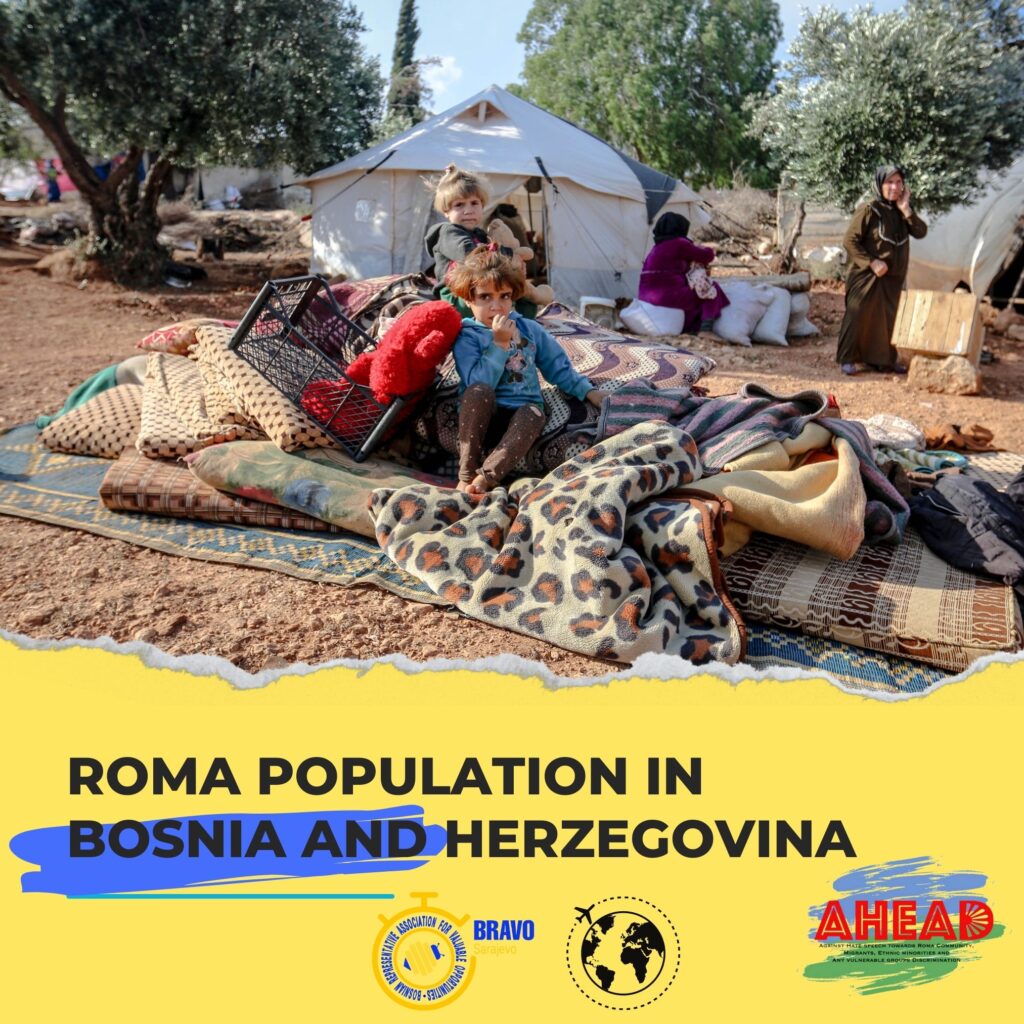
Roma face the greatest discrimination in Bosnia and Herzegovina. Official estimates give a Roma population of 20,000, but other sources, including Roma associations and NGOs, estimate the number to be 30,000-50,000 or more. Most Roma in Bosnia and Herzegovina are Muslim. Most lived in today’s RS before the 1992-1995 war, but are refugees abroad or displaced in the Federation entity, with the largest concentration in the Tuzla Canton.
The Roma are excluded from some forms of political participation by law because they are not constituent peoples. They are represented only in very few cases on the municipal level. At the state level there is an Advisory Board for Roma, which includes Roma, but is rarely consulted on important issues.
Roma settled in the Balkans in the thirteenth century. They have always been viewed by others as second class and faced discrimination in many spheres of life. During Tito’s Yugoslavia, the Roma were somewhat better off than before and after. Before the 1992-1995 war, most of Bosnia and Herzegovina’s Roma lived on the territory of today’s RS. Most were displaced by the war and have not been able to return to their pre-war homes.
Roma fall under the category of ‘Others’ in the legal framework of Bosnia and Herzegovina and, as such, are discriminated against by law and cannot stand for certain public offices. Roma also face discrimination and exclusion from all spheres of societal life, including access to housing, education, employment, and health care. Poverty amongst the Roma is widespread. Twelve years after the war, most Roma remain displaced and live in informal settlements in extremely impoverished conditions, in many cases without proper heating or even access to fresh water. Furthermore, many Roma cannot access services because they do not have the necessary papers; this is mainly due to the fact that many live in informal settlements and cannot register with the municipalities there.
Most Roma do not attend school, even at the primary level, for a range of reasons including poverty; this means their parents cannot afford clothing, materials and transport, and results in negative attitudes of other people, including teachers. The government has elaborated an action plan on Roma educational needs and there has been limited implementation in some areas, including budgetary allocations, but few Roma children are in school.
Romani poverty in Bosnia and Herzegovina has happened for a long time, with more publicized issues in bigger nations covering it up. The European Roma Rights Centre (ERRC) is a nonprofit coalition that activists, who sought independence and pride for Romani people, founded in the mid-1990s. The event that put them on the map was a landmark victory in a police brutality case involving a Romani family in Czechia. The family had a lease contract on flats in the city of Usti nad Labem. The police and municipal employees forcefully evicted them with no explanation. Additionally, the police proceeded to seize and destroy the lease contract. Police claimed that they made a declaration that they were going to terminate the contract and leave to Slovakia. However, there was no evidence of this declaration.
Since this victory, the ERRC has educated the population on the trials of the Roma people. Its mission is to advocate and assist the Romani population across Europe. It encouraged changes in the laws and encouraged the involvement with five other NGO coalitions for joint advocacy. The biggest step that one can take in addressing the issue of poverty within the Romani population is donating to and volunteering for the ERRC.
The fight for independence in Bosnia will not occur without hardship but teaches a lesson on how to sustain a secure nation. Bosnia’s government is facing struggles against the European superpowers that surround it. However, it is not without fault for the treatment of the Roma people.
More about AHEAD project:
AHEAD project aims to promote between youngsters non–discrimination and to combat racism, xenophobia and other forms of intolerance against Roma and other Ethnic minorities (mostly migrants). Partners jointly work on innovative good practice approaches, human rights-based narratives, training, official regular meetings, and European awareness raising campaigns. The project promotes inclusion, tolerance, mutual and multicultural understanding, and fight Roma, ethnic minorities, and migrants in Europe through an innovative approach that combines research, training (national and international) on antidiscrimination and on hate speech, round tables, seminars, the exchange of good practices, meetings between different representatives, stakeholders, CSOs, and youth associations, and a massive dissemination campaign.
The project aims to contribute to strengthening the capacity building of young victims (part of minorities) and the protection of youngsters belonging to minorities by supporting them in capacity building and structuring new mechanisms in public consultations in partner’s country (replicable all over Europe) on the issue of nondiscrimination and fighting every form of hate speech against ethnic minorities, Roma and migrants.
AHEAD’s aim is to tackle hate speech (also online) and to combat discriminations that target minorities in 5 areas of civil rights: education, labor, housing, health, goods and services, through specific training offered to 200 participants and through an new approach that combines quantitative research, public meetings with stakeholders, and awareness raising campaign. After providing expertise, building competences, advocating and raising awareness among youth people, partners will support the mobilization of young victims and will focus on Capacity building actions for youth, in order to involve Youngsters in decision making and into new structured automatic mechanisms to empower their active participation on hate speech and antidiscrimination.
